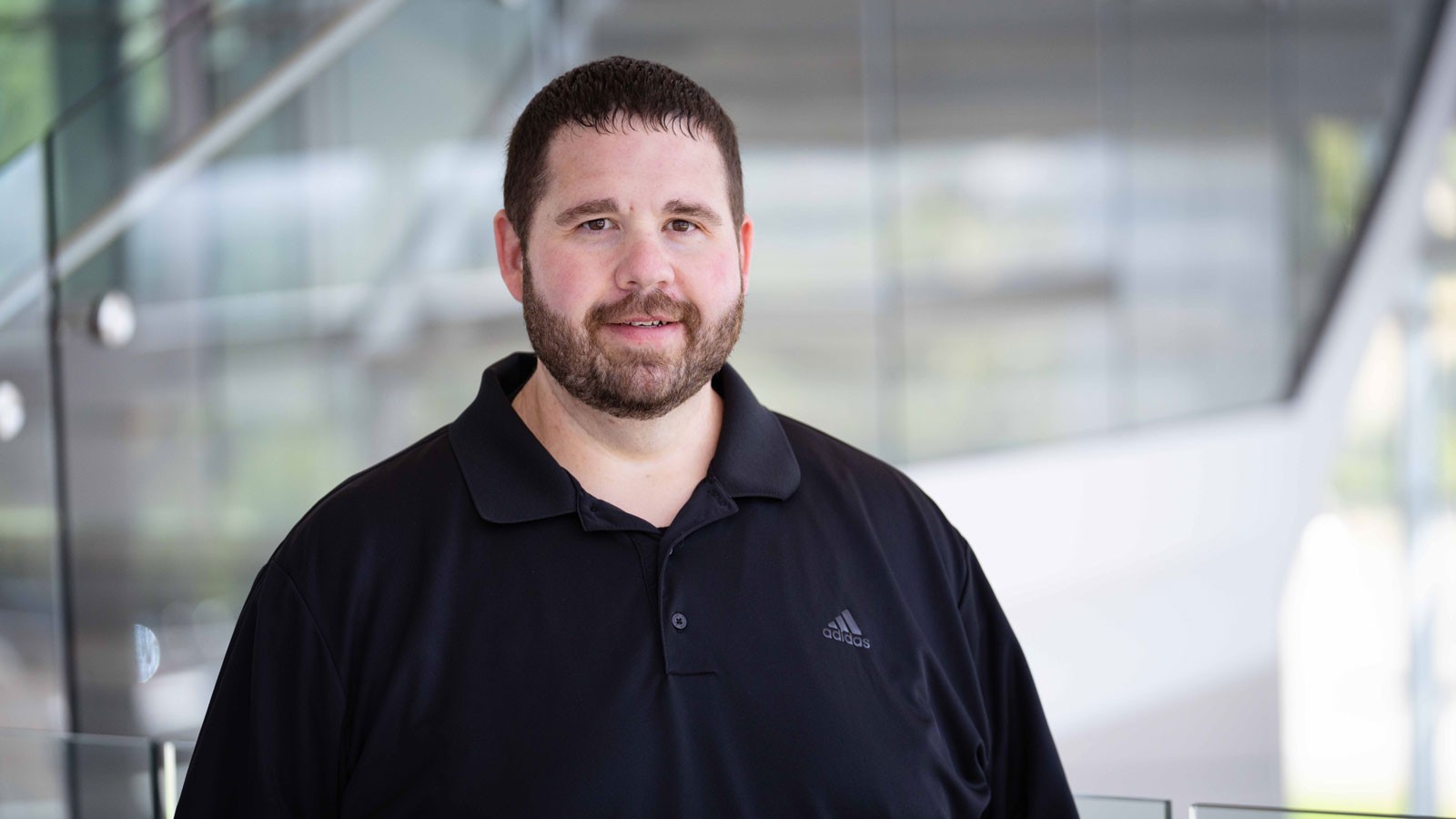USU Student Food Pantry Welcomes New Program Coordinator
By Shelby Ruud Jarman |
Jonathon Walters is the new program director of the Student Nutrition Access Center on USU's Logan campus. SNAC provides help for students experiencing food insecurity and gives students in nutrition and dietetics and other volunteers opportunities to help their peers.
The student food pantry on Utah State University’s Logan campus recently welcomed Jonathon Walters as the program’s new coordinator. The Student Nutrition Access Center, or SNAC, is dedicated to increasing access to food while educating students about nutrition resources and sustainable food practices.
Walters has 15 years of experience working as a chef, including positions at higher education institutions, giving him unique insights into how university food service works. He also taught culinary arts at Bridgerland Technical College for two years before joining USU in his new position.
“College campuses have such great energy,” Walters said. “The best part of this job is getting to work closely with students to help their fellow Aggies.”
Studies show that 1 in 3 college students is food-insecure, meaning they have trouble accessing enough food. Food insecurity is a growing problem on college campuses across the country, according to Casey Coombs, assistant professor in the Department of Nutrition, Dietetics and Food Sciences and the SNAC faculty director.
“A lot of people think of the starving college student as kind of a rite of passage, but it really doesn't have to and shouldn't be that way,” Coombs said. “We are invested in helping all of our students thrive and excel throughout their time here at Utah State, and one of the fundamental things we can do is help them meet their basic needs.”
Walters’ day-to-day activities include collecting food from the Cache Community Food Pantry to bring back to campus to distribute. He also organizes food recovery on campus. Leftover food at the many USU dining locations gets repackaged and donated to SNAC. Walters either coordinates the work with volunteers or does the pickup himself. He also oversees two student directors and two more students who work as pantry assistants.
Along with food recovery from campus dining locations, SNAC also receives produce from the Urban Community Garden, the USU Extension Sustainability Permaculture Garden, and the USU Student Organic Farm. The USU Cache Community Gleaning Team also provides service to people in Logan and surrounding communities, harvesting fruit and vegetables for community members and bringing back a portion for SNAC. Students in the Department of Nutrition, Dietetics and Food Sciences create food products like fruit leather and applesauce as part of their curriculum and donate the surplus to the pantry.
“SNAC is truly a community effort,” Walters said. “We have so many partnerships throughout campus and the broader community. It is an extra step to set the food aside for us, and we’re so grateful that these organizations are willing to work with us.”
During the 2021-2022 academic year, SNAC recovered over 20,000 pounds of food and distributed it to students, with 11,000 student visits. Any student can use SNAC services, no questions asked.
SNAC was originally formed by USU’s Center for Community Engagement in 2010, and the pantry continually grew and improved over the last 13 years. Oversight of SNAC recently transitioned to the College of Agriculture and Applied Sciences and the Department of Nutrition, Dietetics and Food Sciences. This move allowed for department support, faculty oversight, additional funding, and hands-on learning opportunities for students who are preparing for careers that may involve community nutrition programs.
“We were excited to adopt SNAC because we have so many resources and experts in the field of food security, nutrition, agriculture, really all levels of the food system,” Coombs said. “It’s a great opportunity to improve food security on our campus and provide opportunities for students in our programs to practice their skills and share their knowledge. It feels like a symbiotic relationship between SNAC, our department, and the college.”
So far, SNAC has benefited from NDFS students practicing their leadership and management skills, earning volunteer hours, developing recipes and food items for the pantry, and educating fellow students and community members about nutrition. SNAC offers free USU Extension Create Better Health classes that cover nutrition, food preparation and stretching food budgets, all delivered to students by their fellow Aggies in the NDFS program.
Walters’ top priority is making SNAC a safe haven where students know they will get assistance without judgment.
“I want the students to know they’re not alone,” he said. “We’re here to help.”
Another of Walters’ goals is getting more people involved with SNAC, whether through volunteering or donating. Volunteers can sign up on the Aggie Pulse website. SNAC is the focus of the College of Agriculture and Applied Sciences’ goal for this year’s university-wide, 24-hour fundraiser, A Day of Giving on Oct. 5. Also, a new system for payroll deduction donations will make it easier for staff and faculty from across campus to contribute to the pantry.
SNAC is located in the Taggart Student Center in room 332B and is open from 1-5 p.m. Monday, Tuesday, Thursday and Friday. Students on the Logan campus can pick up food once a week by bringing their student ID and a reusable bag. More information can be found online at usu.edu/snac/.
WRITER
Shelby Ruud Jarman
Writer
College of Agriculture and Applied Sciences
208-705-2282
shelby.ruud@usu.edu
CONTACT
Jonathon Walters
Program Director
Student Nutrition Access Center
435-797-7378
jonathon.walters@usu.edu
Casey Coombs
Create Better Health Assistant Director
USU Extension
casey.coombs@usu.edu
TOPICS
Food 168stories Nutrition 80stories Solutions 63storiesComments and questions regarding this article may be directed to the contact person listed on this page.







